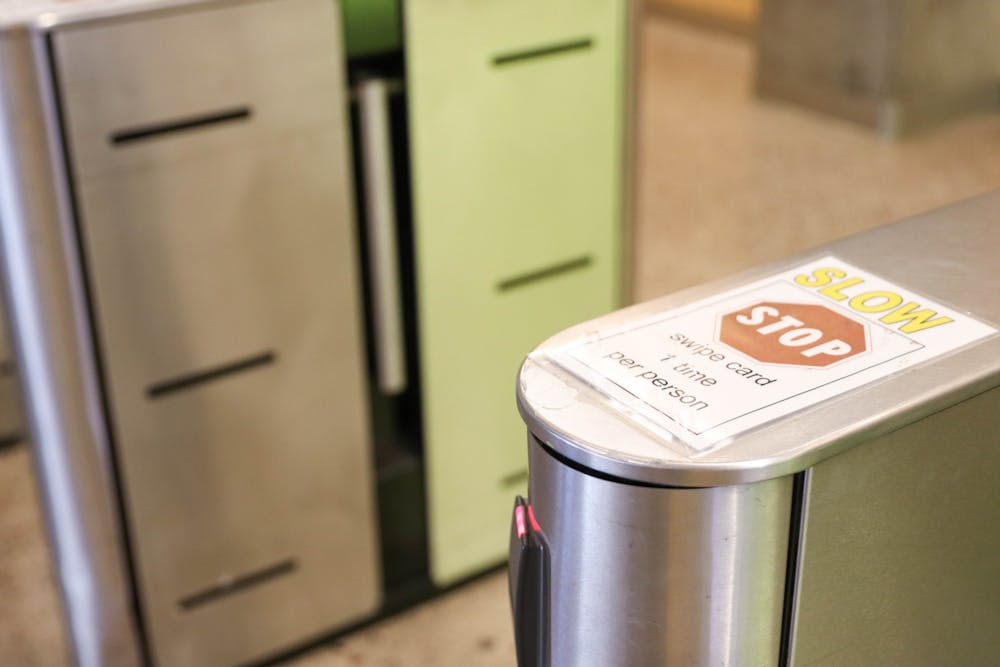Security threats across ASU's four campuses have left students feeling unsafe, both around campus and within their own residence halls. The fact that these events even came close to transpiring shows there are major deficiencies in ASU's housing security that must be addressed in order to keep students safe.
In the past week, there have been multiple break-ins in campus residence halls that have put students at immense risk. One example occurred on Saturday at the Downtown Phoenix campus, when a man entered Taylor Place and stole a student's laptop from her room while she was asleep.
Evan Schreyer, a freshman studying sports journalism, encountered the man, identified in court documents as Donald Ray Marshall when he was already on one of the Taylor Place elevators and witnessed him get off on the fourth floor.
"My first reaction was 'This guy seems a little old to be a college student,' but I didn’t ask questions," Schreyer said. He added there were "no communications or altercations" with Marshall on the way up.
According to the University's Housing Safety and Security page, "front desks are staffed 24 hours a day, seven days a week by Desk Assistants and Desk Managers who are responsible for answering questions and notifying on-duty staff of emergencies and suspicious behavior."
The personnel manning the security desk on Saturday clearly failed to adequately perform their duties. On-duty staff was not notified in time by the front desk staff, resulting in students' rooms being broken into and one resident's laptop being stolen. Since the incident, little has been done to bolster security measures at Taylor Place.
The turnstiles on Taylor Place's ground floor are the only major barrier between non-residents and the residential floors of the dormitory. Other security measures include card scanners at all the building's entrances and by the elevators, but non-residents can easily enter these places when residents scan their cards.
For much of the school year, the turnstiles have been non-functional, despite maintenance staff attempting to fix them several times, leaving no physical barrier to non-residents from entering the elevator lobby.
Another housing security incident occurred in Tempe's Greek Leadership Village, in which ASU Police Department was alerted that a male suspect was making unwanted advances on female students within the housing complex and attempting to enter the buildings.
An image taken of the suspect has tentatively identified him as Robert Stewart Shofner II, who allegedly has an extensive criminal record, including charges of sexual assault and a history of criminal behavior on college campuses. Shofner is reportedly no longer allowed on ASU properties and could face arrest upon return.
ASU GLV's community plan site claims that it has a "wide variety of safety features, including multiple electronic card-access points, CCTV and an addressable fire system." If a known criminal like Shofner was able to readily access the community and harass multiple students without arrest, ASU housing security is clearly not putting enough measures in place to protect students.
"How do we keep letting these security breaches happen? Situations like these lead to a lot of frustration on campus," Schreyer said.
This issue is only heightened by the impending mass influx of tourists into the Valley, particularly downtown Phoenix, for Super Bowl LVII, as the majority of signature pre-game festivities will be held in downtown's Margaret T. Hance Park and the Phoenix Convention Center.
With the rise in economic activity throughout the Valley, criminal activity rises as well. The ubiquitous sporting event is notorious for being a convergence point for human trafficking.
As the Super Bowl approaches, ASU must greatly improve security measures across all campuses to ensure that no further security breaches occur. A high level of vigilance is key, both during and after the big game comes to the Valley, in order to keep our student populace safe.
ASU PD, on one hand, has been effective in disseminating information regarding the suspect in Tempe and arresting Donald Ray Marshall in downtown Phoenix. On the other hand, ASU housing's handling of these security breaches has been absolutely abhorrent.
While living at Taylor Place, the only remote change I have witnessed is security advising against using the automatic wheelchair door. Students should not have to be their own security guards. Quite frankly, students should not have to worry about being a victim of a crime within their own on-campus community.
Greater measures must be taken immediately to protect students from further break-ins, burglary, sexual harassment and any other crimes that have not yet been perpetrated under the lackadaisical watch of ASU housing security.
From hiring more guards to fixing faulty security barriers, the University must do anything and everything to keep its students out of harm's way.
Edited by Kate Duffy, Reagan Priest and Luke Chatham.
Reach the columnist at sgkrantz@asu.edu and follow @selma_krantz on Twitter.
Editor's note: The opinions presented in this column are the author's and do not imply any endorsement from The State Press or its editors.
Want to join the conversation? Send an email to opiniondesk.statepress@gmail.com. Keep letters under 500 words and be sure to include your university affiliation. Anonymity will not be granted.
Like The State Press on Facebook and follow @statepress on Twitter.




